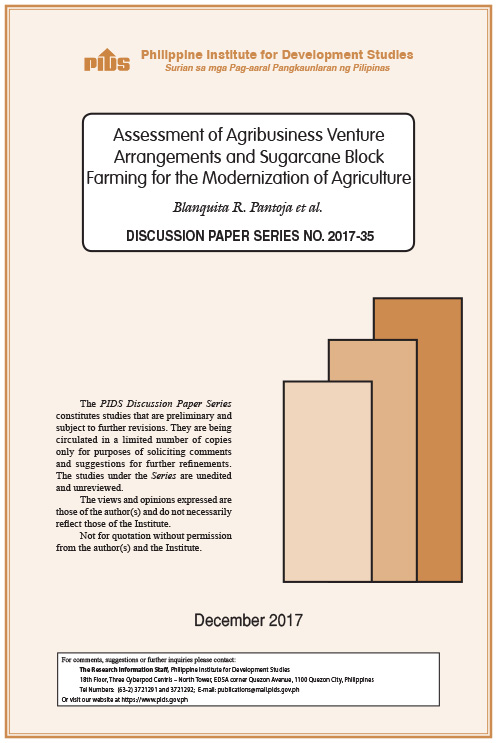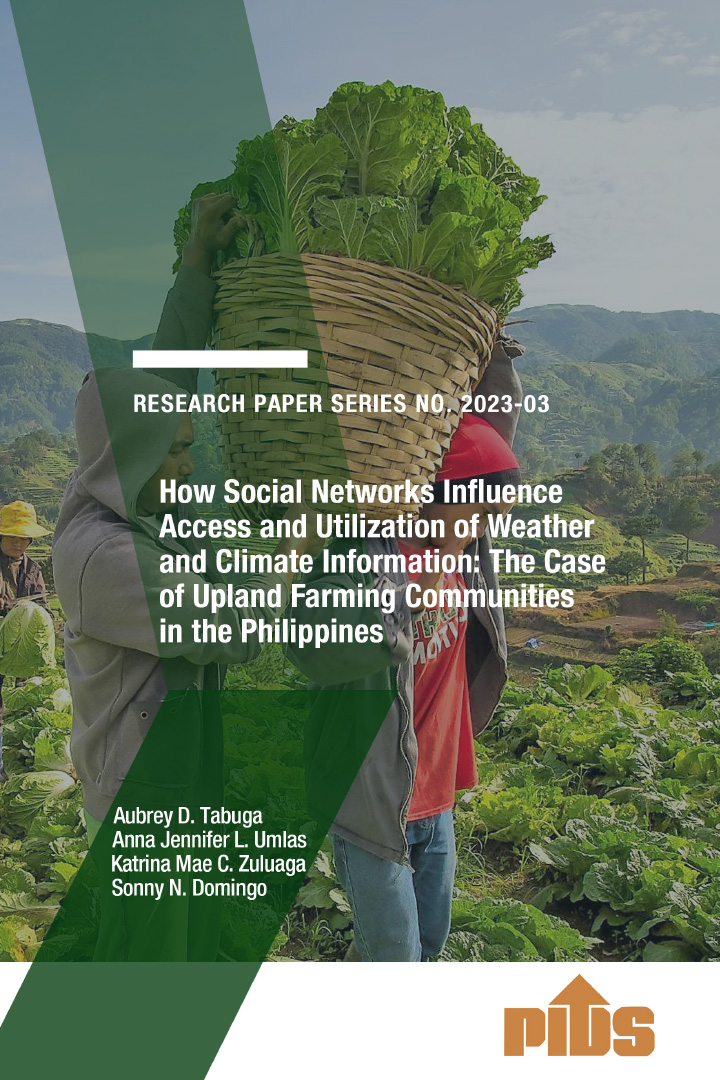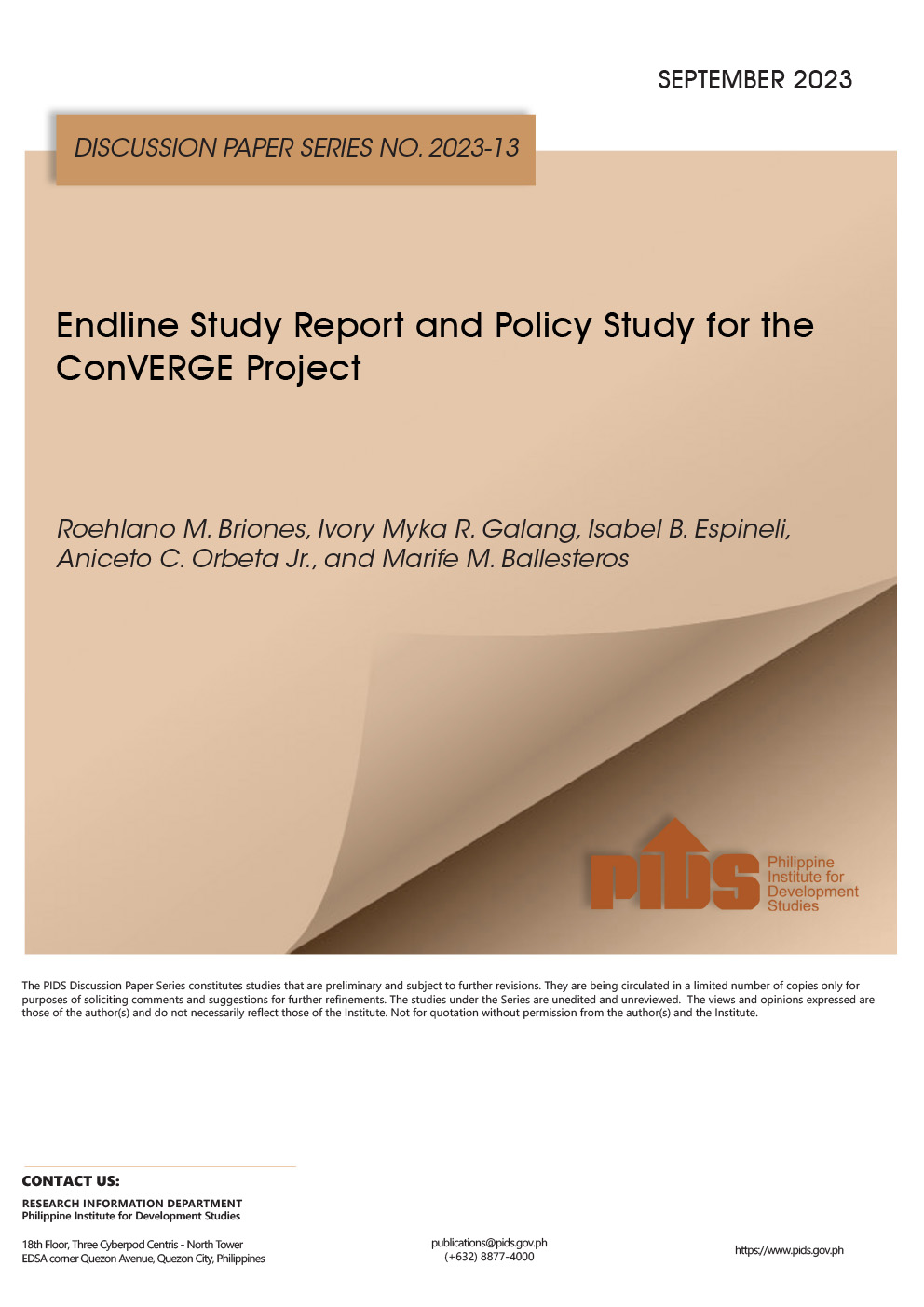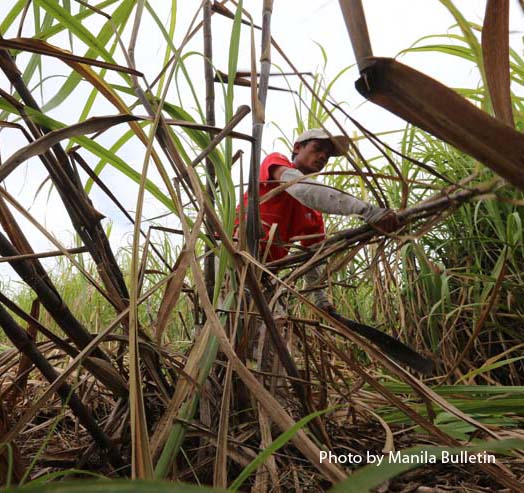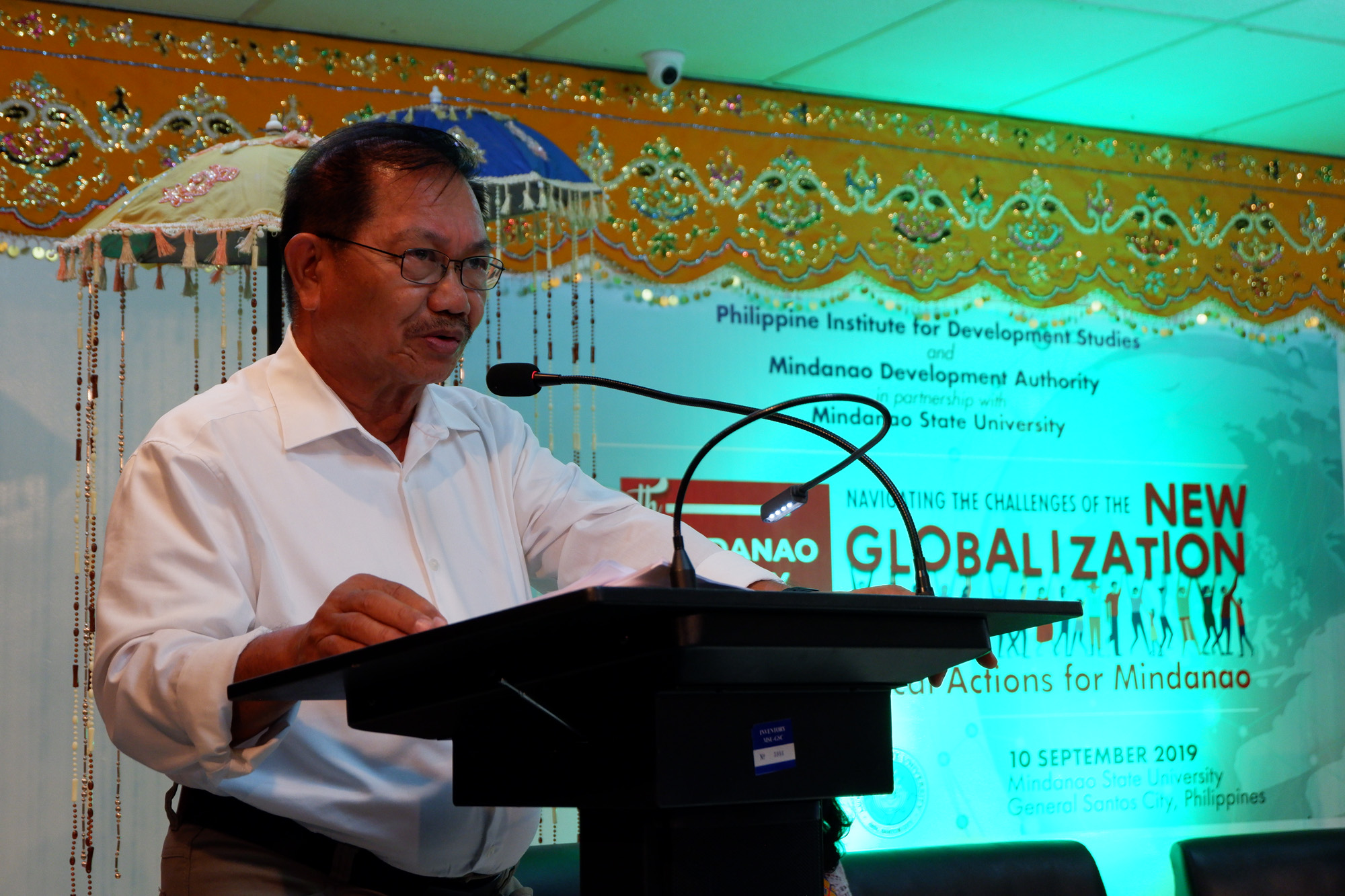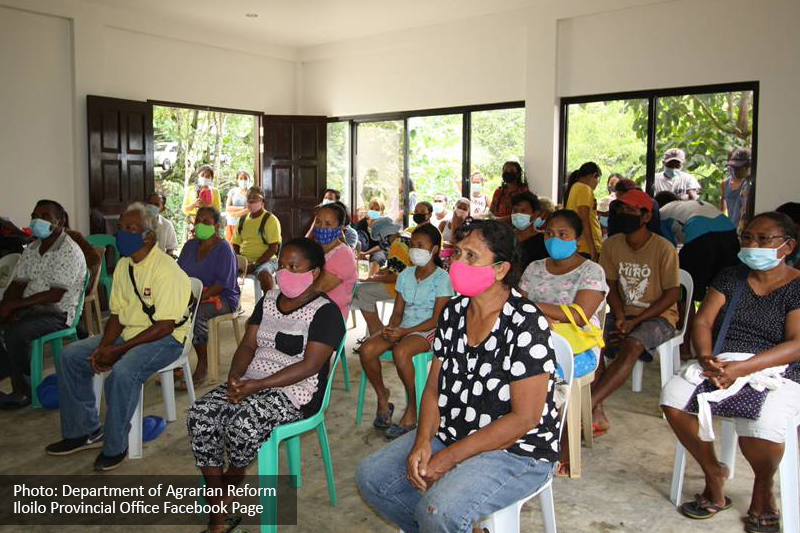After completion of their land reform program, countries such as Japan, South Korea, and Taiwan implemented land consolidation to effect economies of scale specifically in the adoption of modern technologies. Land consolidation plans included the physical reallocation of parcels, joint farming through land exchanges and sale, temporary quasi-land acquisition, and land renovation. In the Philippines, land consolidation to improve farm productivity and income was pursued through Agribusiness Venture Arrangements (AVAs) and the Sugarcane Block Farming (SBF). The objective of this study is to assess the performance of AVAs and SBF in increasing farm productivity and income in the agrarian sector. The case study approach was used focusing on three export crops, namely, banana, pineapple, and sugarcane which were selected based on their significant contribution to the Philippines' export earnings as well as to gross value added of agriculture.
The study notes several issues on production and capital investments, marketing and pricing, institutional support, and contract terms that affect the implementation of AVAs and SBF. It recommends that AVAs, SBF arrangements should be encouraged, but government has to provide a policy environment for Philippine exports crops to be competitive. Agrarian reform beneficiaries and their associations should also be supported through capacity-building activities and access to legal advice.
Citations
This publication has been cited 5 times
- Dagooc, Ehda. 2018. State think tank: Agri loans to aid farmers development. Philippine Star.
- Gatpolintan, Leslie. 2018. Gov't urged to boost initiatives to raise farm output. Philippine News Agency.
- Gomez, Eireene Jairee. 2018. Agri venture schemes, block farming needed’ . Manila Times.
- Valencia, Czerisa. 2018. Agri business venture agreements better than lease deals, says PIDS. Philippine Star.
- Velasco, Ed. 2018. PIDS pushes RP farm productivity initiatives. The Daily Tribune.

